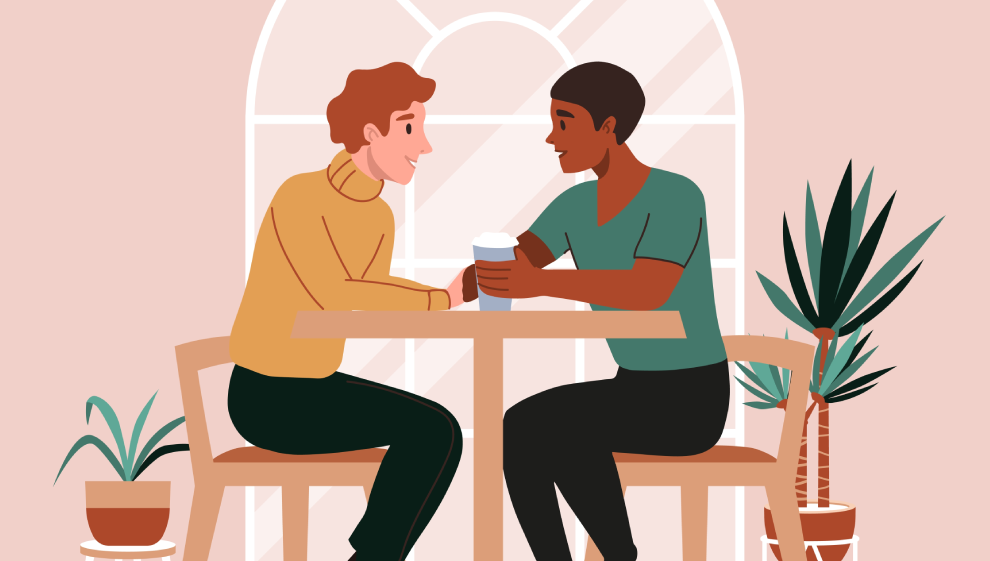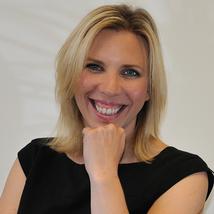Valentine’s Day and mental health: expert advice on what to focus on
While some people look forward to the day with excitement, it can leave others feeling a sense of anxiety or dread, with many even preferring to ignore it completely – which is easier said than done.
As soon as the bright red displays filled with hearts and flowers immediately take their place, whatever your feelings are towards Valentine’s Day, it can be difficult – if not impossible – to avoid.
Communicate your expectations
Our relationship with Valentine’s Day is based on many factors from our backgrounds, past experiences and cultural influences. Difficulties can arise when there is a mismatch between our hopes or expectations and our reality.
For example, you may believe it is the most important day of the year for expressing love to a partner and should involve grand romantic gestures.
If your partner sees this as commercial nonsense and chooses to ignore it or express their love and affection in very different ways, this can automatically create feelings of disappointment, or even hurt and confusion.
Communicating your hopes or expectations for Valentine’s Day is an excellent way of planning a day which works for everyone. Our partners and friends are not mind readers, and can’t see the fantasies we secretly hope for.
Unmet expectations lead to disappointment, so be open and talk to each other and develop your own traditions which work for both of you.
Be unique and avoid comparisons

Valentine’s Day can also be difficult when we compare our experiences with others. “What are you doing on Valentine’s Day… or what did you get?” can be questions that evoke feelings of lacking or even loneliness, whether we are in a relationship or not.
Comparing yourself to others can negatively affect your self-esteem, mental health, and professional or personal well-being. Real life rarely looks like the perfectly staged ‘snapshots’ on social media.
Go your own way. Your Valentine’s Day should be as unique as you are and doesn’t need to look like anyone else’s. If it makes you feel more comfortable, treat Valentine’s Day as any other day within the week.
Disconnect yourself from the ‘comparison trap’ – especially with other people’s or society’s expectations. This is particularly important if you're feeling pressurised about not being in a relationship for Valentine's Day.
Say no to single shaming
Many people are single for all sorts of reasons. Some enjoy being single and have more important priorities than finding a partner. Despite this, there is a popular stereotype that suggests what single people want, more than anything, is to be part of a couple.
Many single people have experienced ‘single shaming’, in which people assume they must be feeling lonely or sad for not having a partner or because they haven’t been successful in finding a match. The idea that there must be ‘something wrong with you’ because you’re single is particularly shaming.
These stereotypes are untrue and damaging, especially if we internalise societal expectations for meeting big milestones – such as getting married or having children.
You might think you are being thoughtful or even sensitive by reassuring your single friends that ‘you too will find love soon’ but this could be more harmful than helpful, and can often leave someone feeling as if they are less of a person if they are not in a relationship.
Focusing on the whole person and all aspects of their life rather than their relationship status can help us to avoid single shaming ourselves, or others.
Here are three tips to help you avoid single shaming
- Avoid questions relating to their dating life: ask about their hobbies and interests, what they are reading, where they are travelling and what projects they are involved in at work.
- Avoid reassuring them that the right person is around the corner: if the conversation does turn to someone’s love life, take care that you don’t inadvertently pity or console someone for being single – unless they are looking for specific support in this area.
- Focus your conversations on the things you care about the most: if you’re single and are on the receiving end of intrusive questions about your romantic life, don’t feel that you need to defend’ yourself or come up with reasons for why you are still single. Redirect the conversation by moving the focus to talk about what is important to you in your life at present.
Be mindful that your partner may not fulfil your every need
Valentine’s Day can trigger another unhelpful myth – the idea that when in, or looking, for a relationship we should be with our soulmate to be truly happy and fulfilled. You may feel pressurised to find a kindred spirit or the only person you are destined to be with.

This creates an impossible ‘soulmate standard’, that one person should fulfil all of your connection needs, whether they're romantic, emotional, sexual, spiritual or intellectual, as well as sharing all of your interests. Expecting one person to meet all of our needs can place a massive burden on any relationship.
It is highly unlikely that one person can live up to all of our idealistic expectations which are often based on subconscious fantasy rather than reality. Our partners, like ourselves, have strengths as well as flaws.
It is more realistic to think about a partner who you love and who shares your values but can be different to you. It’s okay and healthy to have some of our needs met outside of a relationship. In this way, a partner can be perfectly imperfect.
Understand the difference between destiny and growth beliefs
People who develop unhelpful soulmate standards often subscribe to ‘destiny belief’ rather than ‘growth beliefs’. This can be potentially damaging to a relationship.
Destiny beliefs: relate to a person believing they are destined to be with one person who is their one true soulmate. This can lead them to continually question whether the person they are with is their soulmate or just the best they can do, creating thoughts of whether they are missing out on the right one.
Growth beliefs: are based on the idea that relationships take time to build and that there are opportunities to grow and fit together. People with these beliefs might ask more adaptive questions, such as, “Are we a good fit?” or “How can we improve our communication?” and “Do we share the same values and goals for the future?”
If you think you might be setting yourself unrealistic soulmate standards it can help to reflect on your past relationship patterns. Do you have a long list of very specific but unrealistic deal breakers? Or do you, for example, end relationships at the first sign of miscommunication or disagreement?
Exploring relationship patterns is not the same as settling or putting up with fundamental problems. It is understood that sometimes flexibility or compromise is a sign of relationship growth rather than weakness.
Life outside of your relationship
It’s important to respect your own unique identities outside of a relationship. It’s okay to pursue the hobbies and interests that excite you and to acknowledge the many ways in which other people can meet our varied needs, bring us joy and bring out the best in ourselves.
Last updated Monday 13 February 2023
First published on Monday 13 February 2023

